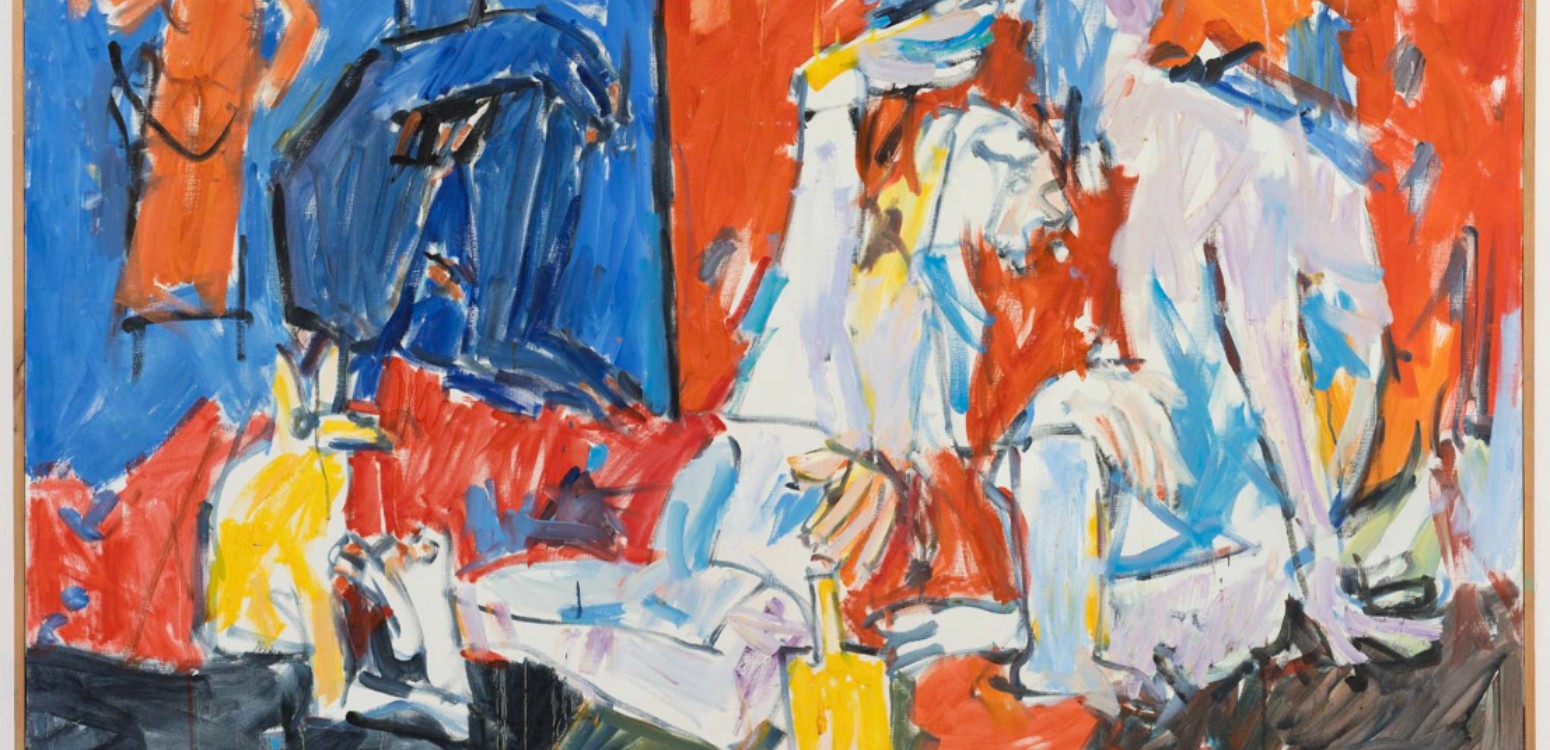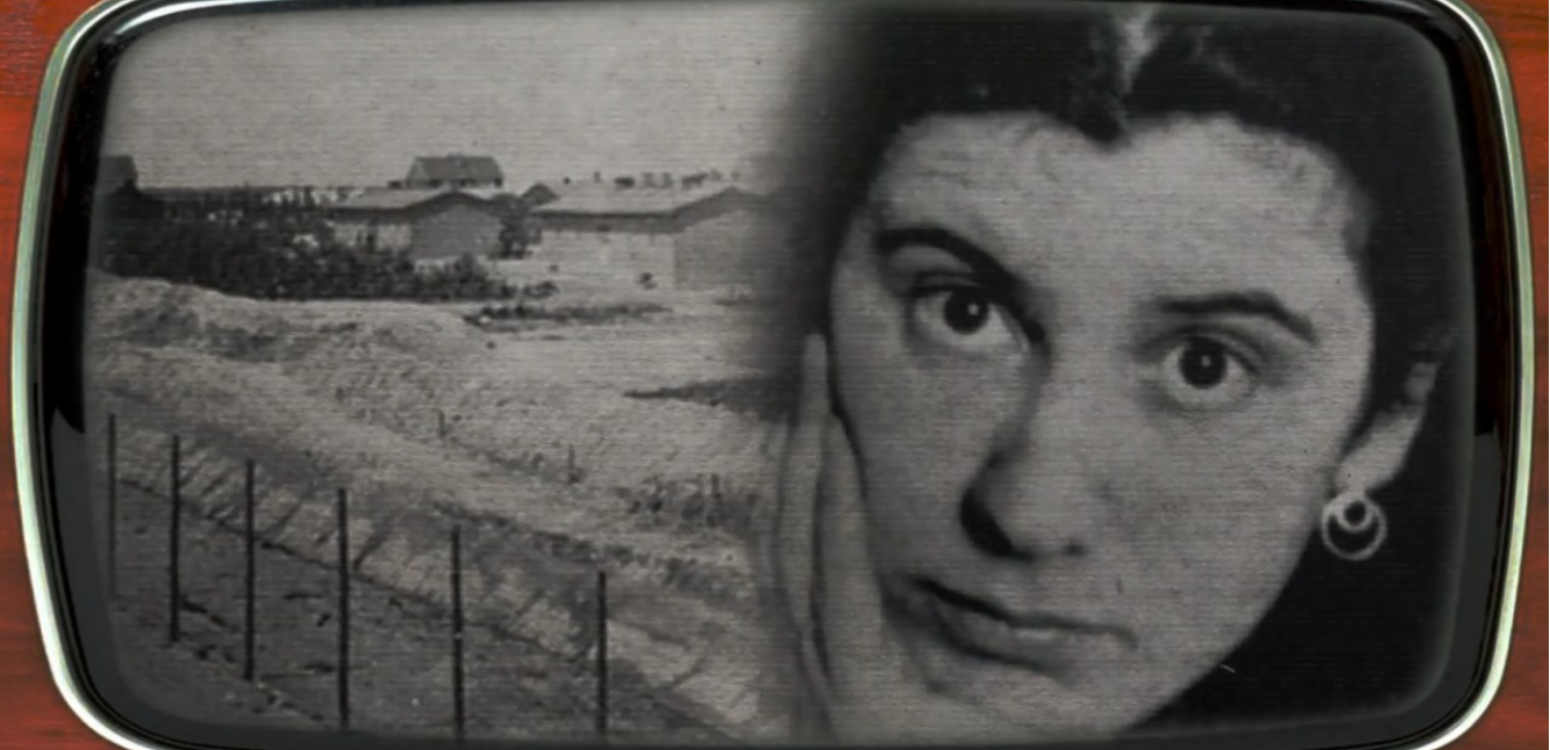Nurit Zarchi has already written more than 160 books in which she switches from dreams to reality and back again, inspiring hope in her readers, young and old alike
There is something unique about Nurit Zarchi’s writing: it’s full of honesty and truth, even if it hurts; it is devoid of flattery or attempts to educate, and it reminds the reader that there are mysteries in the world, things that are unknown or missing.
Nurit Zarchi, poet and author, winner of the Israel Prize for Literature and Poetry in 2021, has been publishing books since 1966. Until now, she has written more than 160 books: poetry, stories, novels, mysteries, essays, children’s and young adult books. She is the mother of two daughters, painter Roni Taharlev and historian Erela Taharlev Ben-Shachar, and has six grandchildren, including musician and author Kama Vardi and film-maker Jonathan Vardi. In addition to the Israel Prize, Zarchi has won, among other things, the Hans Christian Andersen Award for Children’s Literature (three times!), the Prime Minister’s Prize, and many more.
She could have had a different life
Zarchi was born in Jerusalem in 1941, the daughter of the teacher Esther Hananit and the author, translator and editor Israel Zarchi, who was the academic secretary of the Hebrew University in Jerusalem. The family was involved in Jerusalem’s cultural life and shared their flat with the Klausners (Amos Oz’s family). Israel died of cancer in Jerusalem in July 1947. He was only 38, but in his short life he published more than ten books and translated Joseph Conrad and Heinrich von Kleist into Hebrew. Nurit was five when he died.
The loss of her father echoes in her writings. In the book “Yoni and the Horse” (1975), Yoni’s father dies at the beginning of summer. Before that, everything was absolutely fine, and Yoni asks why did his father – of all people – have to die. If Nurit’s father hadn’t died when he did, she could have lived a completely different life.
Israel Zarchi was supposed to receive a diplomatic position and travel with the family to South Africa. That didn’t happen. Following his death, Nurit’s mother Esther moved her and her baby sister to Kibbutz Geva in the Jezreel Valley, where Esther started working as a teacher. She was determined to prove herself and to make a positive contribution to the kibbutz so the family could remain there. Later she remarried and had a son. Nurit, the oldest daughter to a single mother, who came fatherless from the city, worked hard not to be different from the other kids, a lesson she learned from Dahlia Ravikovitch (the Israel Prize-winning poet, 1936-2005), who also moved to Kibbutz Geva as a child when her father died, where she was bullied terribly by the kibbutz children.
Zarchi spent her childhood and youth between Kibbutz Geva, Jerusalem (where her father’s family lived), and Petah Tikva (where her mother’s family lived). Her writing draws from biographical sources and childhood wounds but because of the absence of memories (for example, of her father), Zarchi fills these spaces with imagination, fantasy, and dreams.
As a child, Nurit wrote naturally. Being the daughter of a writer and of a teacher who wrote plays for the kibbutz school, she inherited the skill and the inclination to write. The teachers read her poems at festivals and at celebrations and printed them in the kibbutz’s children’s newspaper. At the age of nine she wrote a prize-winning story that was printed in the most popular Israeli children’s magazine at the time, Devar Leyeladim.
Forgetting the Battle of Mount Gilboa
Her feeling of not belonging to the kibbutz was expressed in her writing. For instance, in her books “Outsider” (1978) and “Abigail from the King’s Mountain” (1989). In the latter an orphan Holocaust survivor goes alone to the ancient village of Gibeon, which like Kibbutz Geva also stood opposite Mount Gilboa, and where nobody understands her. Abigail escapes from the kibbutz into the surrounding countryside and to Mount Gilboa itself, going back in time to the eve of the famous Battle of Mount Gilboa, where she witnesses the fateful meeting between the Witch of Endor and King Saul.
From the king’s mountain, she speaks to the heart of the king and tries to prevent the tragedy but fails in her attempt to change the results of the Battle of Mount Gilboa. After grieving, she returns to Gibeon with a seed of hope that she will finally find her place there.
Zarchi says that as a child, she thought that if she forgot the Battle of Mount Gilboa she could change the Bible and prevent the deaths of Saul and Jonathan. She also said that only in 1948, during the War of Independence, when children were exposed to killing and burials, did she understand the meaning of her father’s death.
Discovering Emily Dickenson and Virginian Woolf
Zarchi continued writing during her army service. She then trained as a teacher so she could help provide for the family. In 1961 she began publishing her poems in a literary journal and discovered Emily Dickenson, who had a major influence on her poetry. Other influences included the Danish writer Karen Blixen, who wrote under different pseudonyms (including male names like Isak Dinesen), and the English writer Virginia Woolf (1882-1941).
In 1963 Zarchi began studying philosophy and literature at Tel Aviv University. During her studies she worked at the Petah Tikva library and discovered the work of the Swedish author Selma Lagerlof (1858-1940). Lagerlof became the first woman to win the Nobel Prize for Literature, combining realism with elements of fantasy from mythology and folk stories and legends – a combination which would greatly influence Zarchi’s work.
During this period Zarchi met Yoram Taharlev (1938-2022), who was from Kibbutz Yagur in northern Israel. They married young and went to live on his kibbutz. On the way to the kibbutz laundry one day, Zarchi found his poems in the pocket of his trousers, and convinced him to try to publish them. This is how Taharlev began his 60-year-long career as a songwriter, poet, author and translator, writing the lyrics for more than 1,000 songs that have become part of Israel’s DNA. They were married for 12 years.
Letting children express sadness, loneliness, and doubt
Zarchi is first and foremost a breath-taking poet. Her first book, which was published in 1966 when she was 25, was a poetry collection for adults (“Green, Green”); and her second book, “I Like Whistling in the Street,” was a book of poetry for children, which was published during the Six-Day War in 1967.
When Zarchi and Taharlev lived as a young couple in Yagur, one of the rooms in the apartment that they rented was closed to them, as it was used to store the owner’s furniture. This experience of not having a place and a room of her own inspired the beloved children’s song “A Woman in a Watermelon,” which was performed by singer Chava Alberstein.
Zarchi’s books for children are also considered ground-breaking. Her biography reminds one of the values of a working Israel, with its idealized strong and handsome sons and daughters who learned Zionism on their parents’ knees and are eager to defend the collective, those who saw the formation of the State and defended it through war and completely identified with it. In her early works, though, Zarchi offered readers authentic expressions of sadness, loneliness, doubt, the criticism children have towards their parents or the adult world. Before Zarchi, Israeli children’s literature was dedicated to instilling national or educational messages, but her work focused on a single child and their feelings of alienation and loneliness and pain. She gave room to the inner world of children, their emotions and fears.
The struggles of being a woman
Zarchi says that she started out writing for adults, but because she had young children, she was closer to their world and as a result found it easier to write for them. But her books continue to appeal to both children and adults, with each finding different elements and layers that are closer to them. In her books for children and young adults, her poetry, prose, and essay collections like “The Unnecessary Thoughts of a Lady” (1982), Zarchi wrote about her existence as a woman, about the struggle between her life as an author, her self-expression and her self-employment, and her life as a mother who was responsible for two girls, not only as a breadwinner but also as someone whose role was to understand them and allow for their own self-expression. In her later works for adults, she continues to write about loneliness, which has accompanied her since she was a child, but from the point of view of a woman in her 80s.
In "If My Mother Can't Love Me, Who Else Will?" (1995), Zarchi portrays young cat Petunia who loses her mother in a dark yard, along with parts of herself like her voice. Petunia tries desperately to be visible—becoming clearer, smaller, or larger—anything to earn her mother's love and attention. Though she repeatedly returns home to a mother who meets her physical needs but remains emotionally unavailable, Petunia continues searching. This story reflects Zarchi's own relationship with her mother, who "barely a mother" prioritized kibbutz responsibilities and making a living over emotional connection with her daughter.
Zarchi also wrote many picture books for young children and collaborated with the top illustrators in Israel, including Rutu Modan, David Polonsky, Batia Kolton, as well as her own daughter, the painter Roni Taharlev. The encounter between their imagination and that of Zarchi’s, where the logic of reality and fantasy collide, created and continue to create captivating worlds.
Zarchi gives children the space that she didn’t have, to be different, sad, orphaned, lonely, wanting. She doesn’t patronize children; she respects them. She builds them a bridge they can take into the world even if it can’t be seen, one made from a spider’s web that appears in many of her stories, repeatedly twisted and unraveled at will.
**
Main Photo: Nurit Zarchi by Sumitra Dawadi





















